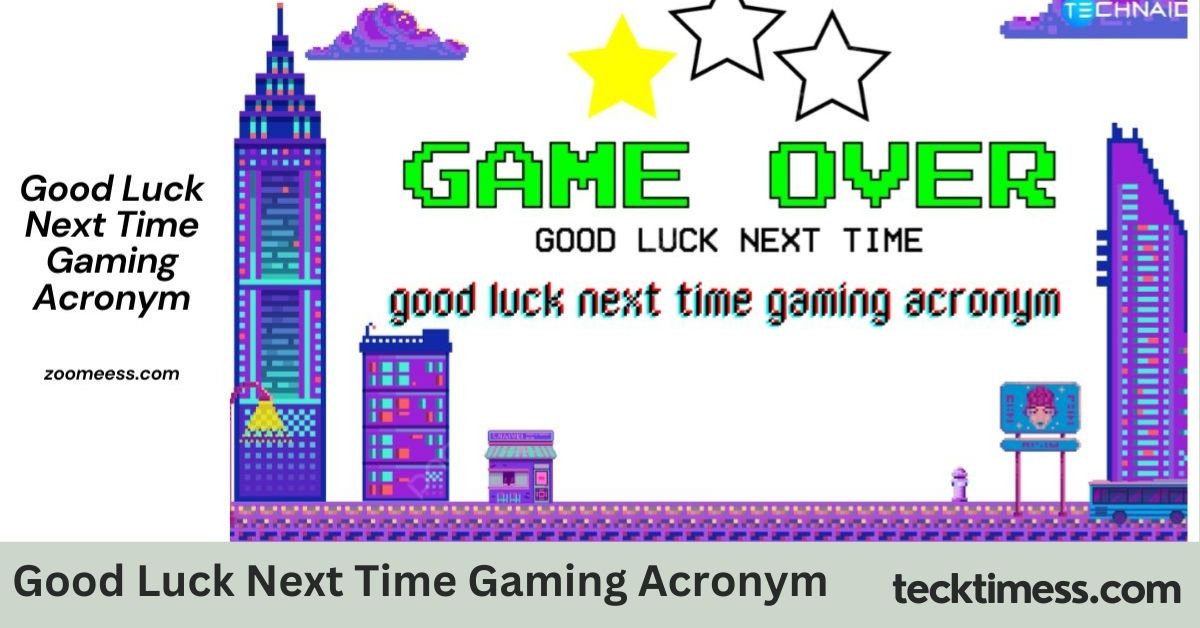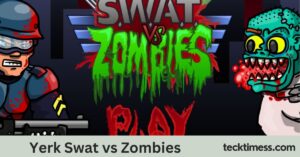The gaming world is full of unique phrases, slang, and acronyms that help players communicate quickly and effectively. One such term that has gained popularity is the “Good Luck Next Time” gaming acronym. This phrase is more than just a way to bid farewell; it’s a symbol of sportsmanship and encouragement in the competitive gaming environment. In this article, we will explore the origins, meaning, and significance of the “Good Luck Next Time” acronym, its role in the gaming community, and why it’s more important than ever in today’s digital age.
What is the Good Luck Next Time Gaming Acronym?
The “Good Luck Next Time Gaming Acronym” typically refers to the abbreviation “GLNT” or simply “GLHF,” which stands for “Good Luck, Have Fun.” While “GLHF” is used before the start of a game, “GLNT” is often used after a match to convey a sense of sportsmanship and encouragement to an opponent. The phrase essentially tells the other player, “Better luck next time,” without any hard feelings, promoting a positive gaming experience.
Origins of the Good Luck Next Time Acronym
The origins of “Good Luck Next Time” as a gaming acronym can be traced back to the early days of online multiplayer gaming. As gamers sought faster ways to communicate in the heat of the moment, acronyms and shorthand phrases became commonplace. The gaming community, known for its competitive spirit, needed a way to express goodwill and maintain a friendly atmosphere, even after a hard-fought battle. Thus, “GLNT” emerged as a way to remind players that it’s just a game, and there’s always a chance to win next time.
The Importance of Sportsmanship in Gaming
Sportsmanship in gaming is crucial, especially in an environment where emotions can run high. Whether you’re playing a casual game or participating in a high-stakes tournament, maintaining a respectful attitude towards your opponents is vital. The “Good Luck Next Time” acronym plays a key role in fostering a positive gaming culture. It reminds players to stay humble in victory and gracious in defeat, which can lead to a more enjoyable and less toxic gaming community.
How the Acronym Enhances Communication in Gaming
In fast-paced games where time is of the essence, communication needs to be quick and efficient. The “Good Luck Next Time” acronym serves this purpose well, allowing players to convey a message of encouragement in just a few characters. This brevity not only saves time but also ensures that the sentiment behind the message is clear and understood by all parties involved.
Common Misunderstandings of the Acronym
Despite its positive intent, the “Good Luck Next Time” acronym can sometimes be misunderstood. For example, in competitive settings, some players may interpret it as sarcasm or a backhanded compliment, especially if tensions are high. It’s important to be mindful of the context in which you use this phrase and to pair it with other actions that reinforce its intended meaning, such as a friendly post-game chat.
Related Terms and Acronyms in Gaming
In addition to “GLNT” or “Good Luck Next Time,” there are several other related acronyms that players use to express similar sentiments:
- GG (Good Game): Used to show appreciation for a well-played match, regardless of the outcome.
- HF (Have Fun): Often paired with “GL,” this phrase encourages a lighthearted approach to the game.
- WP (Well Played): Acknowledges the skill or strategy used by an opponent during the game.
These terms all contribute to the broader culture of respect and camaraderie in the gaming world.
Why “Good Luck Next Time” Matters in Competitive Gaming
Competitive gaming, or esports, has grown exponentially over the past decade. With the rise of professional leagues, tournaments, and streaming platforms, the stakes have never been higher. In this environment, the “Good Luck Next Time” acronym takes on added significance. It’s a reminder that, even in the heat of competition, respect for your opponents and a positive attitude are essential.
Promoting a Positive Gaming Culture
The gaming community has faced criticism for its sometimes toxic environment, where insults and bad behavior can overshadow the fun of the game. By using phrases like “Good Luck Next Time,” players can contribute to a more positive and welcoming atmosphere. Encouraging good sportsmanship helps to reduce negativity and promotes a culture where everyone can enjoy the game, regardless of skill level.
Real-Life Examples of the Acronym in Action
In many online games, such as League of Legends, Overwatch, or Fortnite, you’ll often see players typing “GLNT” or “GG” in the chat after a match. These small gestures go a long way in maintaining a friendly environment. For example, in a recent Counter-Strike: Global Offensive tournament, a well-known player used “GLNT” after narrowly losing a match, which was praised by fans and commentators alike for its display of sportsmanship.
The Future of Gaming Acronyms
As gaming continues to evolve, so too will the language that players use to communicate. While “Good Luck Next Time” is already a staple in the gaming lexicon, it’s likely that new acronyms and phrases will emerge as the community grows. However, the core values of sportsmanship and respect that “GLNT” represents will remain relevant, no matter how much the gaming world changes.
Conclusion
The “Good Luck Next Time Gaming Acronym” is more than just a shorthand phrase; it’s a symbol of sportsmanship, respect, and encouragement in the gaming community. By using this and similar acronyms, players can help foster a positive gaming environment that is inclusive and enjoyable for everyone. As the gaming world continues to expand, the principles behind “Good Luck Next Time” will continue to play a crucial role in shaping the culture and experience of gamers around the globe.
FAQs
What does “GLNT” stand for in gaming?
“GLNT” stands for “Good Luck Next Time,” a phrase used to express encouragement and sportsmanship after a game.
Is “Good Luck Next Time” the same as “GLHF”?
Not exactly. “GLHF” stands for “Good Luck, Have Fun” and is typically used before a game starts, while “GLNT” is used after the game to convey encouragement for future matches.
Why is sportsmanship important in gaming?
Sportsmanship is crucial because it helps maintain a positive and respectful environment, making the gaming experience more enjoyable for everyone involved.
Can “Good Luck Next Time” be seen as sarcastic?
In some cases, yes. The context in which it’s used is important. Pairing it with friendly actions can help convey its intended positive meaning.
Are there other similar acronyms used in gaming?
Yes, acronyms like “GG” (Good Game), “HF” (Have Fun), and “WP” (Well Played) are also commonly used to express goodwill and sportsmanship in gaming.





